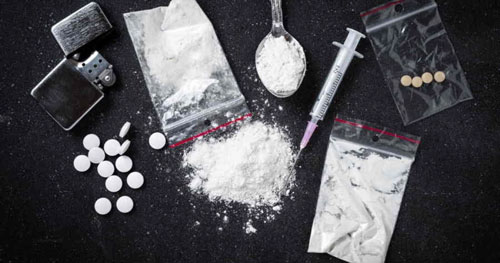Criminal Lawyer for Drug Trafficking
Have you been charged with a drug-related offence?

You have been charged with an offence related to drug possession or trafficking, and you are wondering about the consequences of this type of charges? At Riendeau Avocats, we always find the answers to your questions. Our hard-working team of criminal lawyers is ready to help you defend your case and guide you towards the best possible defence.
WHAT ARE THE LEGAL DRUGS IN CANADA?
Some drugs are legal in Canada, such as:
- Cigarettes
- Alcohol
- Cannabis
Even if the consumption of these drugs is legal, they are still governed by laws and regulations of that you must respect. For instance, the Cannabis Act includes authorized quantities.
WHAT ARE THE ILLEGAL DRUGS IN CANADA?
Here is a list of the most common illicit drugs in Canada:
– Magic mushroom
– Cocaine and crack
– Ecstasy
– GHB
– LSD or acid
– Heroin
– Methamphetamine
– Ketamine
For a complete list of drugs prohibited in Canada, you can consult Schedules I to VI of the Controlled Drugs and Substances Act.
CONTROLLED DRUGS AND SUBSTANCES ACT
The Controlled Drugs and Substances Act lists most of the offences and penalties related to illicit drugs, including simple possession, possession for the purpose of trafficking, trafficking, production, and importing and exporting.
WHAT DRUG POSSESSION MEANS?
Possession is defined in section 4(3) of the Criminal Code and reads as follows
«(3) For the purposes of this Act:
(a)a person is in possession of a thing when he has it in his personal possession or knowingly:
(i) has it in the actual possession or custody of another person, or
(ii) has it in a place whether or not it belongs to or is occupied by him for his own use or benefit or that of another person
(b)where one of two or more persons, with the knowledge and consent of the other or others, has a thing in his custody or possession, it is deemed to be in the custody and possession of all of them and of each of them.»
This section thus creates three different categories of possession: personal possession, putative possession and joint possession. Translated with
SIMPLE POSSESSION OFFENCE
Simple possession is what might be called personal possession. According to the Supreme Court of Canada’s decision in R. v. Morelli, the essential elements of this category are: “Some form of physical contact between the accused and the drug; a measure of control exercised by the accused over the drug; and knowledge by the accused of what the substance is.”
The formula is simple: simple possession = control + knowledge.
POSSESSION OFFENCE FOR EXPORT PURPOSES
Possession for the purpose of export has the same criteria as simple possession; that is, the accused must have some control and knowledge of the substance. In addition, there must be a specific intent to move it across borders.
DRUG AND OTHER SUBSTANCES TRAFFICKING OFFENCE
Trafficking is defined in section 2(1) of the CDSA as “any sale, including the sale, administration, gift, transfer, transportation, shipment or delivery of such a substance or any offer to do any of those things…”.
Mainly, trafficking offences are making an offer and intending to make that offer and/or carrying out that offer. In addition, assisting someone to obtain a substance, for example by referring a contact, makes that person an accomplice and therefore commits the offence of trafficking.
PRODUCING DRUGS AND OTHER SUBSTANCES OFFENCE
Production is defined in section 2 (1) of the Controlled Drugs and Substances Act as:
“[…] the act of obtaining it by any method, including by:
(a)manufacturing, synthesizing or otherwise altering its physical or chemical properties
(b)the cultivation, propagation or harvesting of the substance or of a living organism from which it may be extracted or otherwise derived. This includes the offer to produce.
The essential elements of production are the knowledge that the cultivation, multiplication or harvesting of the substance is taking place, and the knowledge of the nature of the substance produced. The prosecution must prove beyond a reasonable doubt that the accused grew, propagated or harvested the substance.
If someone intends to assist a person in committing the offence, that person could be charged with participation in the offence under section 21(1)(b) of the Criminal Code.
IMPORT AND EXPORT OFFENCE
Importation or exportation occurs when any of the substances contained in Schedules I to IV of the CDSA are illegally brought into Canada or exported from Canada.
The offence of importing and exporting is considered illegal when the contraband enters or leaves the country. There must also be knowledge that the import or export is illegal and the intent to do so anyway, so there must be an intent to import or export an illegal substance. Knowledge of the nature of the illegal substance is not required for intent.
PENALTIES AND CONSEQUENCES FOR DRUG CHARGES
Depending on the substance, the type of charge and the legal proceedings, the penalties may vary greatly and can go as far as life imprisonment.
Given the magnitude of these penalties, we strongly recommend that you contact one of our experienced drug offence lawyers to get the facts about the penalties you face based on the facts of your case. Call us today!
How can we help you ?
Request a free legal consultation with one of our criminal lawyers.





















